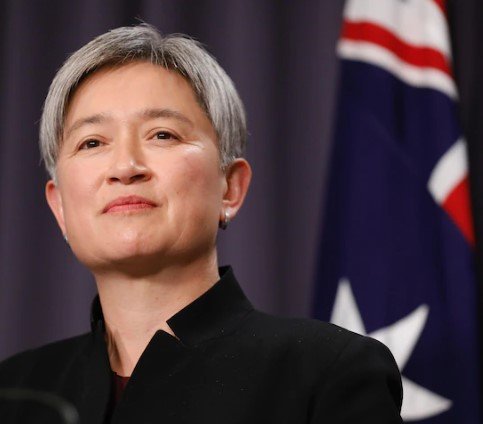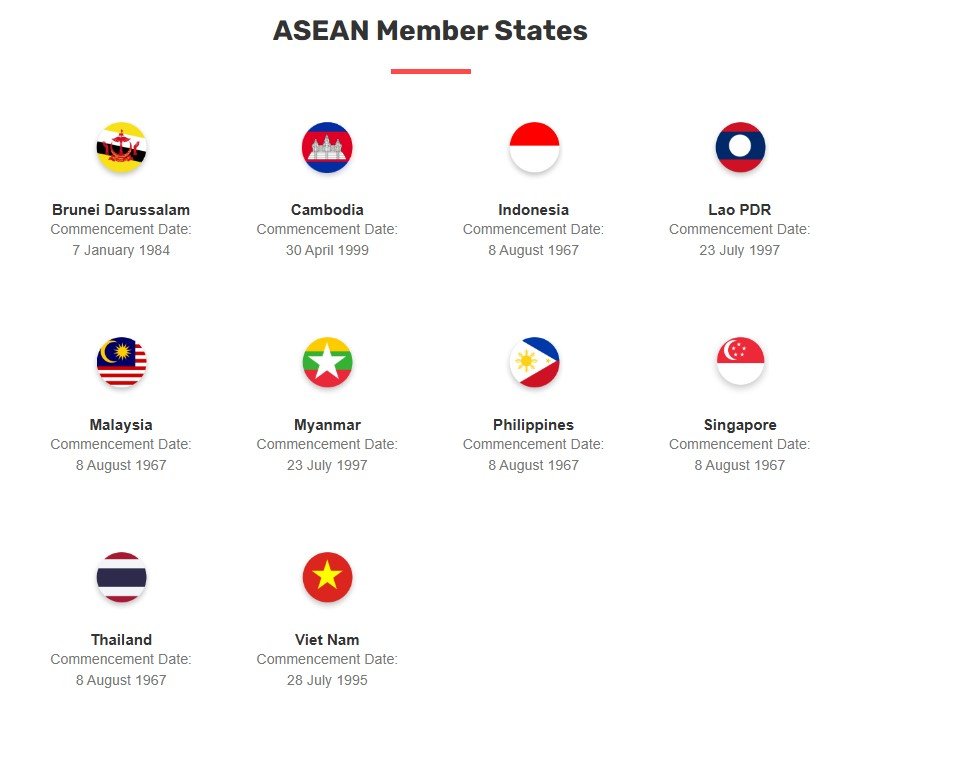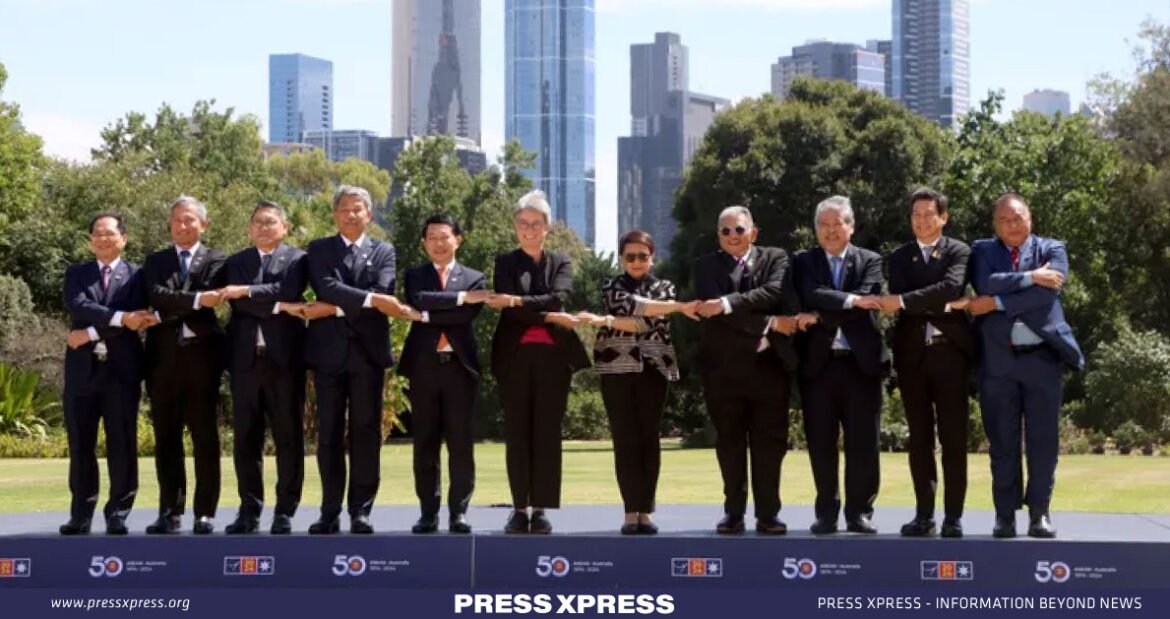Australia raised concerns about rising defense threats in the Indo-Pacific and Southeast Asia during a summit with regional leaders in Melbourne on March 4th, 2024. This comes alongside a significant announcement: an increase in funding for maritime security projects with ASEAN countries.
A Region on Edge
Australian Foreign Minister Penny Wong, while addressing the summit, painted a picture of a region facing “destabilizing, provocative and coercive actions including unsafe conduct at sea and in the air,” though she refrained from directly naming any specific nation. This veiled reference is widely interpreted as alluding to the South China Sea tensions, a contested region with rich natural resources and crucial shipping lanes.
“We face destabilizing, provocative and coercive actions including unsafe conduct at sea and in the air,”
– Penny Wong, Australian Foreign Minister

Prime Minister Anthony Albanese told the ASEAN-Australia Special Summit that Australia’s destiny was in Southeast Asia more than anywhere else in the world, further strengthening Australia’s stance and support for ASEAN. In a move seen as a response to these growing concerns, Australia pledged A$286.5 million ($186.7 million) to support maritime security projects with ASEAN member states. This funding boost aims to bolster regional cooperation and equip Southeast Asian nations with the tools needed to safeguard their maritime interests.
The summit, which marked the 50th anniversary of Australia’s dialogue partnership with ASEAN, was attended by nine out of 10 ASEAN leaders, with Myanmar’s junta chief Min Aung Hlaing absent amid international condemnation of his brutal crackdown on pro-democracy protesters.
Australian Foreign Minister Penny Wong, while addressing the summit, painted a picture of a region facing “destabilizing, provocative and coercive actions including unsafe conduct at sea and in the air,” though she refrained from directly naming any specific nation. This veiled reference is widely interpreted as alluding to the South China Sea tensions, a contested region with rich natural resources and crucial shipping lanes.
Prime Minister Anthony Albanese told the ASEAN-Australia Special Summit that Australia’s destiny was in Southeast Asia more than anywhere else in the world, further strengthening Australia’s stance and support for ASEAN. In a move seen as a response to these growing concerns, Australia pledged A$286.5 million ($186.7 million) to support maritime security projects with ASEAN member states. This funding boost aims to bolster regional cooperation and equip Southeast Asian nations with the tools needed to safeguard their maritime interests.
The summit, which marked the 50th anniversary of Australia’s dialogue partnership with ASEAN, was attended by nine out of 10 ASEAN leaders, with Myanmar’s junta chief Min Aung Hlaing absent amid international condemnation of his brutal crackdown on pro-democracy protesters.

Background
Australia has been a staunch ally of the United States, which has been engaged in strategic competition with China over trade, technology, and influence in the Indo-Pacific region. China claims most of the South China Sea, through which about $3 trillion of trade passes each year. Brunei, Malaysia, the Philippines, Taiwan, and Vietnam also have claims to parts of the sea.
Australia has also been deepening its defense ties with other regional partners, such as Japan, India, Indonesia, and Vietnam, as well as supporting the Quad, an informal grouping of the US, Japan, India, and Australia that aims to promote a free and open Indo-Pacific.
Significance of Australia’s statement
Australia’s statement on Monday was a clear signal of its commitment to the security and stability of the Indo-Pacific and Southeast Asia, as well as its recognition of ASEAN’s centrality and role in the regional architecture.
By offering more maritime security assistance to ASEAN, Australia was also demonstrating its willingness to share the burden and responsibility of maintaining the rules-based order and international law in the region.
Australia’s statement also reflected its desire to enhance its economic and people-to-people ties with ASEAN, which is its second-largest trading partner and home to more than 650,000 Australians of Southeast Asian heritage.
Myanmar conflict special focus
The summit also focused on the ongoing crisis in Myanmar, where civilians have been killed and more than 2.3 million displaced by the junta’s violent suppression of anti-coup protests since February 2021. ASEAN, which has a policy of non-interference in the internal affairs of its members, has been struggling to find a way to resolve the situation and restore democracy in Myanmar.
In April 2021, ASEAN leaders held a special meeting in Jakarta and issued a five-point consensus, which called for an immediate cessation of violence, a dialogue among all parties, a special envoy to facilitate the dialogue, the provision of humanitarian assistance, and a visit by the envoy to Myanmar.
However, the junta has failed to implement the consensus and has continued to use force against the protesters and the ethnic armed groups that have joined the resistance movement. The summit in Melbourne issued a joint declaration, which reiterated the call for the implementation of the five-point consensus and urged all parties to exercise utmost restraint and avoid further violence.
The declaration also expressed support for the appointment of Brunei’s second minister for foreign affairs, Erywan Yusof, as the ASEAN special envoy to Myanmar, and welcomed his plan to visit the country as soon as possible.
ASEAN and Australia could help bring peace to Myanmar
ASEAN and Australia have a shared interest and responsibility to help bring peace and stability to Myanmar, which is not only a humanitarian tragedy but also a potential source of instability and insecurity in the region.
ASEAN and Australia could work together to pressure the junta to stop the violence and engage in dialogue with the National Unity Government, which represents the elected civilian leaders and the diverse ethnic groups of Myanmar.
ASEAN and Australia could also coordinate their efforts to provide humanitarian assistance to the affected people in Myanmar, especially those in the conflict zones and the border areas, where access is limited and conditions are dire.
ASEAN and Australia could also support the efforts of the United Nations and other international actors to find a lasting solution to the crisis and to ensure accountability for the human rights violations committed by the junta.
Australia and ASEAN, with their combined resources and diplomatic clout, can offer crucial support to Myanmar’s civil society and democratic forces. This could involve providing humanitarian aid, facilitating dialogue between conflicting parties, and advocating for the release of political prisoners.
By working together, Australia and ASEAN can foster a more stable and secure environment in Southeast Asia, one that upholds the principles of democracy, human rights, and international law. Ultimately, this collaborative effort is not just in the best interests of the region but also serves to safeguard global peace and security.
Conclusion
Australia and ASEAN, with their combined resources and diplomatic clout, can offer crucial support to Myanmar’s civil society and democratic forces. This could involve providing humanitarian aid, facilitating dialogue between conflicting parties, and advocating for the release of political prisoners.
By working together, Australia and ASEAN can foster a more stable and secure environment in Southeast Asia, one that upholds the principles of democracy, human rights, and international law. Ultimately, this collaborative effort is not just in the best interests of the region but also serves to safeguard global peace and security.
Australia’s commitment to regional security, coupled with its increased partnership with ASEAN, offers a glimmer of hope for a more stable and collaborative future in the Indo-Pacific. However, the challenges remain significant, and addressing the crisis in Myanmar will be a critical test of the region’s collective resolve.


